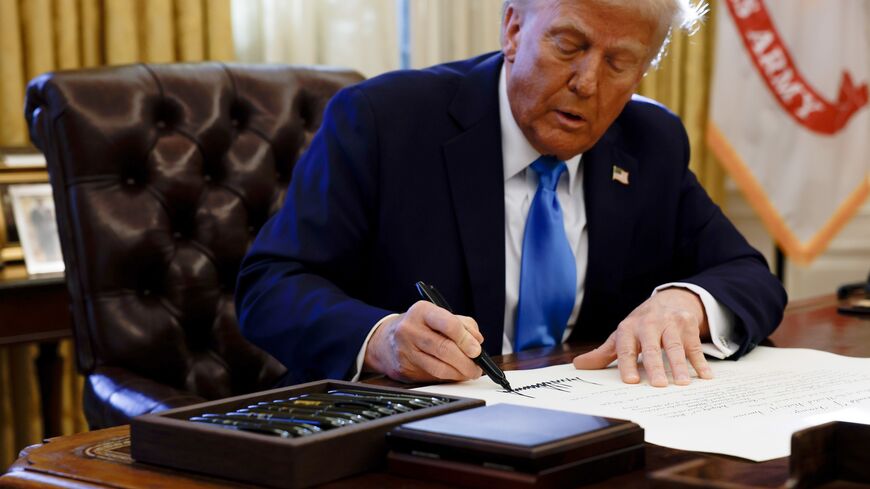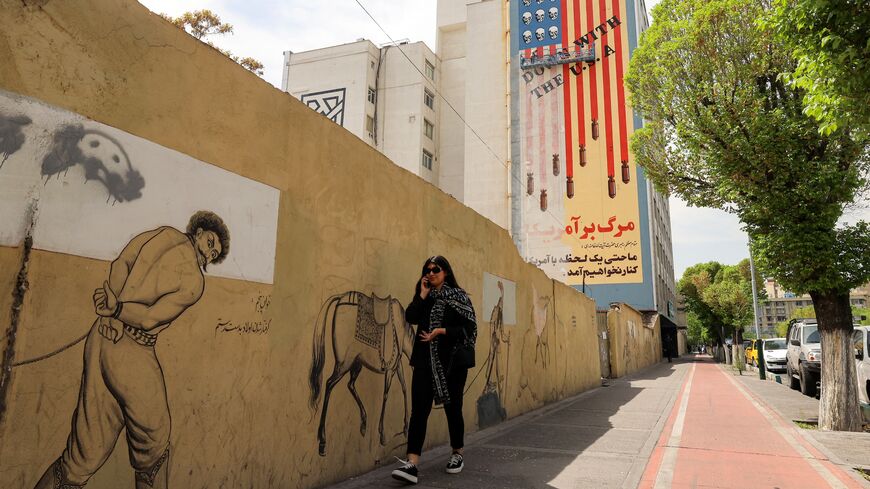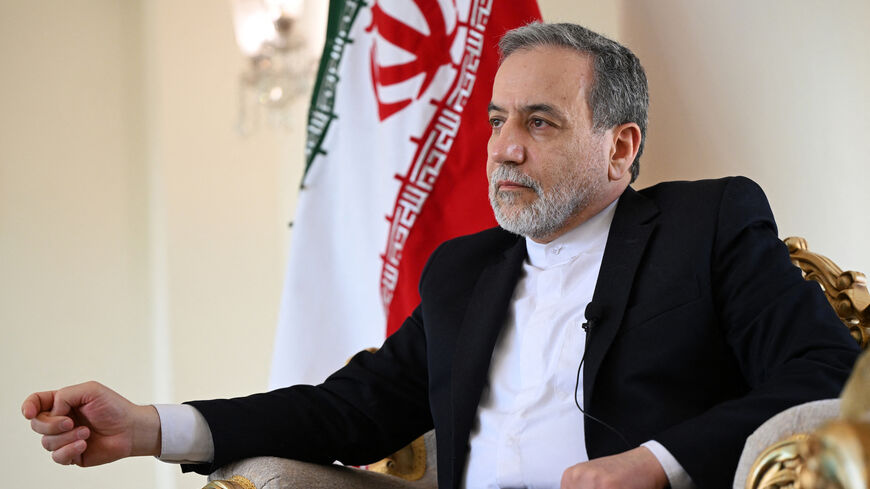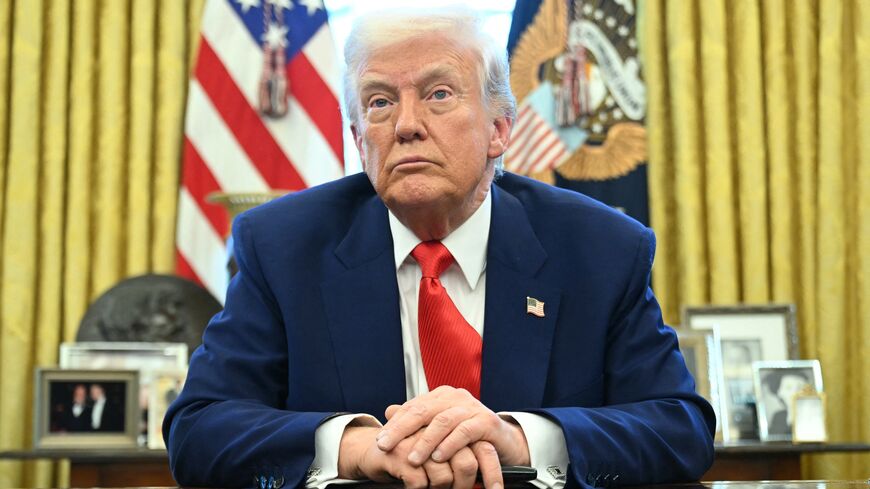Trump says US, Iran in 'direct talks' over nuclear program
President Donald Trump said the two sides will hold a "very big meeting" on Saturday.
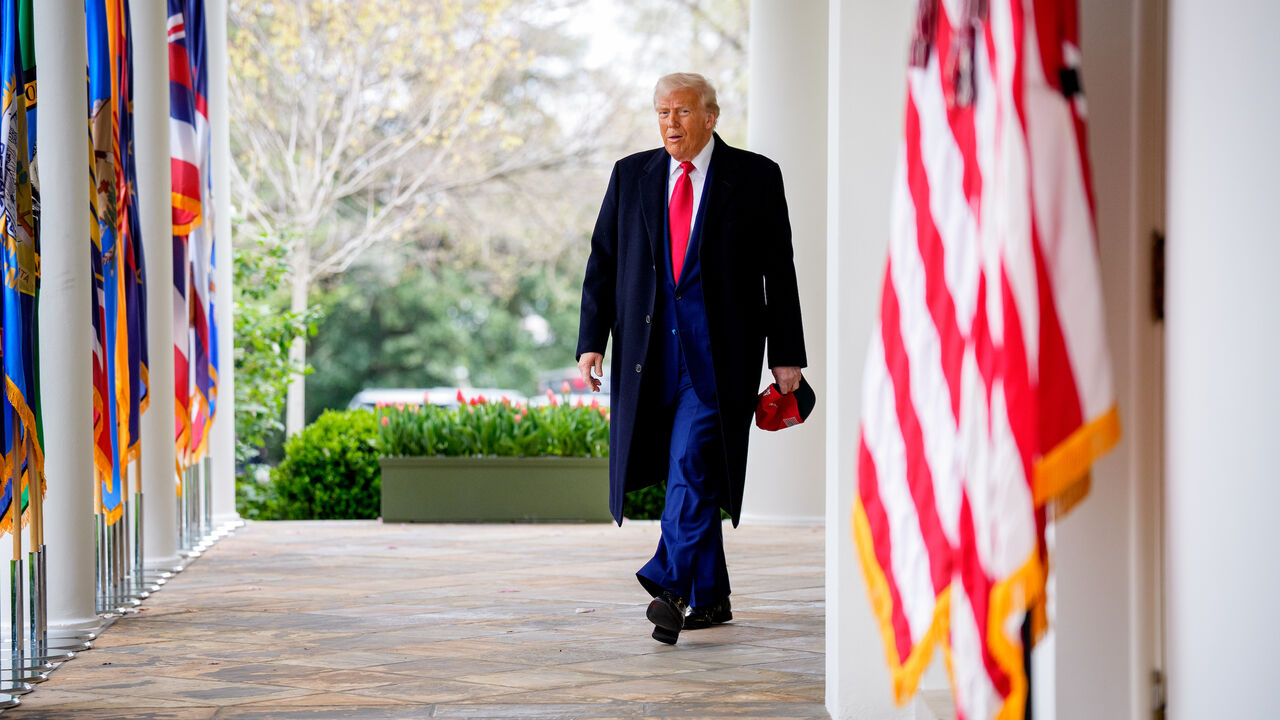
WASHINGTON — President Donald Trump said Monday that the United States is conducting “direct talks” with Iran over its nuclear program, warning Tehran that it would face “great danger” should diplomacy fail.
Speaking alongside Israeli Prime Minister Benjamin Netanyahu in the Oval Office, Trump told reporters a “very big meeting” with Tehran would take place on Saturday between officials “at almost the highest level.” He did not say where the negotiations would take place or who would represent the United States in the talks.
“We're dealing with them directly, and maybe a deal is going to be made,” Trump said. “I think everybody agrees that doing a deal would be preferable to doing the obvious.”
“If the talks aren't successful with Iran, I think Iran is going to be in great danger,” Trump said when asked if the United States would take military action to prevent Iran from building a bomb.
Iranian officials have consistently rejected face-to-face talks with the Trump administration while leaving the door open for indirect negotiations over its nuclear program. Iranian Foreign Minister Abbas Araghchi said Monday that Iran was waiting for the US response to its recent proposal for indirect talks mediated by Oman, which has long served as an intermediary between the two adversaries.
“Now the ball is in the US’ court to respond to the Islamic Republic’s proposal, although we are in no hurry,” Araghchi said in an interview with Tasnim news agency.
The Iranian Mission to the United Nations declined Al-Monitor’s request for comment.
Netanyahu said he and Trump share the same goal of ensuring Iran does not obtain a nuclear weapon. The Israeli premier said he would support the dismantlement of Iran’s program “the way it was done in Libya.”
Under former leader Moammar Gadhafi, Libya agreed to fully dismantle its nuclear program and open itself up to full inspections as part of a 2003 disarmament agreement with the United States and the United Kingdom. Surrendered uranium, centrifuge parts and other sensitive material were airlifted out of Libya, much of it shipped to an American nuclear plant in Oak Ridge, Tennessee. Experts say it’s highly unlikely that Iran would agree to a similar arrangement.
Iran insists its nuclear program is for civilian purposes only, even as it accelerates its production of highly enriched uranium to near weapons-grade levels, which is enough to build at least six bombs. Experts say Tehran’s nuclear program is too advanced to restore the 12-month "breakout time” of the original 2015 deal.
Trump withdrew the United States from that deal in 2018 and imposed harsh economic sanctions on Iran’s oil and banking sectors. He said Monday he’s seeking a new nuclear agreement that will be “different and a lot stronger” than the one he abandoned.

